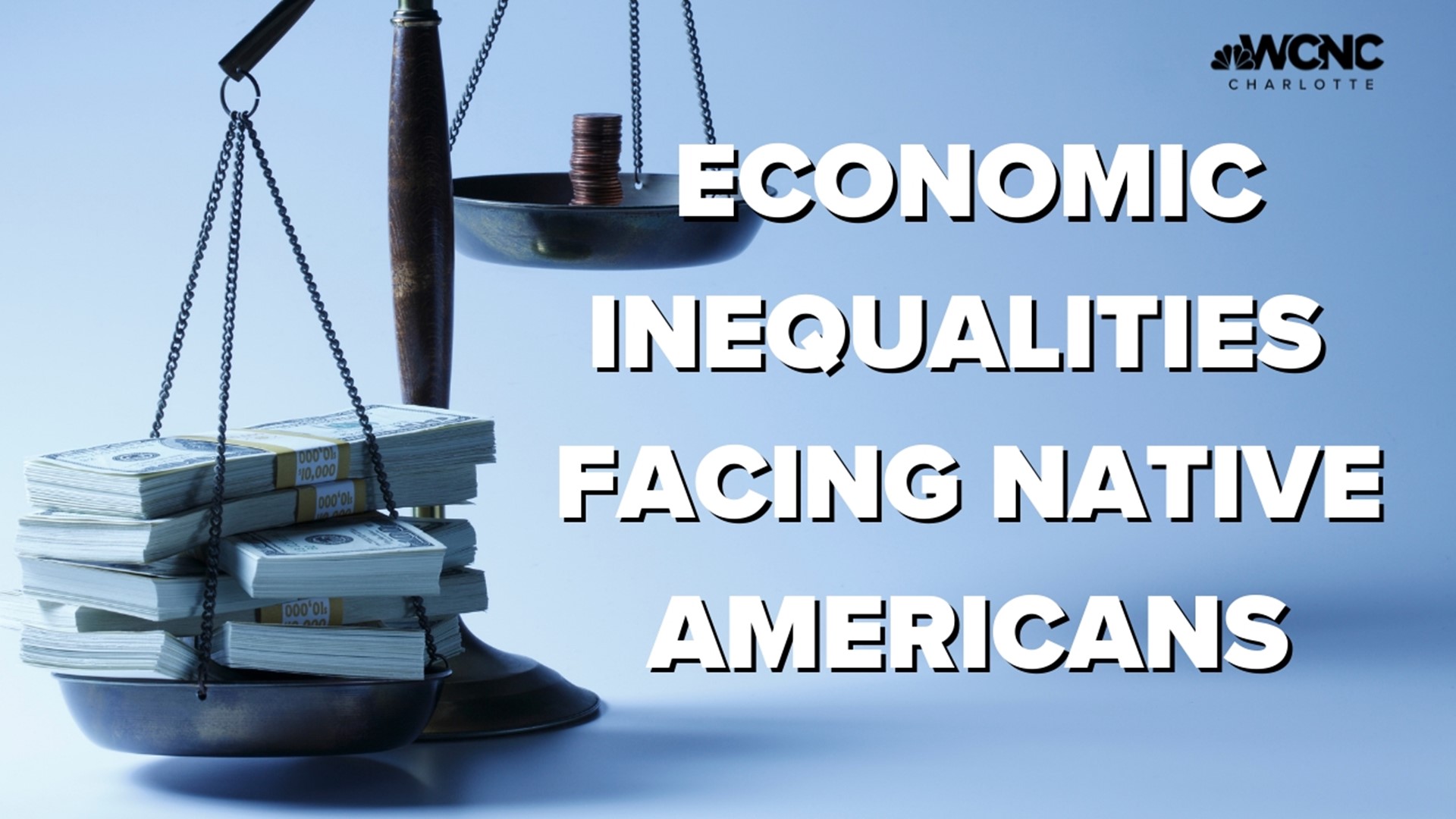CHARLOTTE, N.C. — Over the course of the pandemic, analysts discovered how COVID-19 exposed social inequalities from health care to the economy among different ethnic groups, including Native Americans.
Dawson Her Many Horses, head of Native American Finance for Wells Fargo Commercial Banking, talked to WCNC's Jane Monreal about the findings.
"Tribal communities have been impacted by economic events over the last 20 plus years: 9-11, the great financial crisis, and now this," Her Many Horses said. "This report was kind of born out of that, reflecting on those experiences and our desire to support our clients and stakeholders in a way that's kind of meaningful and reflects our expertise in the market."
In time for Native American Heritage Month, which started November 1, a new report hopes to seek solutions on how tribal communities can help themselves weather another external event.
Wells Fargo partnered with Boston Consulting Group for the report, which covers 574 federally recognized tribes in the U.S. The North Carolina Commission of Indian Affairs recognizes eight tribes. South Carolina has one.
An analysis shows one of the challenges in knowing how to move ahead is a lack of data.
"There isn't a lot of business or economic data that talks about Native American communities," Her Many Horses said. "So I think that lack of data has an impact on tribes' ability to find investments for the projects they want to build on their lands."
He said part of the problem is not knowing how tribal economies work.
"In mainstream America, I think it's the entrepreneur. It's small businesses, right? Those are the things that drive economic opportunity in major America," Her Many Horses explained. "But in Native America, it's tribal governments and the businesses they own, that drive most economic opportunity."
Having to shut down Indian gaming, which created a record 39 billion dollars in the fiscal year 2021, according to the National Indian Gaming Commission, during covid would negatively impact that reservation's government.
Her Many Horses said, "Whether they're casinos, hotels, or their businesses when there's an economic downturn, it has an impact on those profits and the tribes' ability to fund important programs for their members like health care, housing, cultural preservation."
He said the report offers tribal leaders a framework to think about other economic development opportunities with the profits they make from the casinos.
"It helps them think about other ways they can leverage their assets, to kind of help them withstand the next economic downturn," Her Many Horses added. "It's a big report, but we think there's a lot in it that folks will find useful."
He said there is hope the private sector will also invest in tribal communities.
The ex-Charlottean told WCNC, "When we look at the banking landscape available for tribal communities, what we see is that a lot of the financial institutions that are available in mainstream America, don't necessarily go into or have exposure to Native America: venture capital, private equity, regional banks, national banks. You know, there are a lot of banks that just haven't done much or may not know about opportunities in tribal communities."
The report also addresses the digital divide.
"It certainly has an impact on economic development. There's a financial inclusion component to it as well. I think when folks aren't able to access their bank accounts, it limits the number of individual tribal members who can access banking services. So I think broadband is a huge issue," Her Many Horses said.
He said the federal government has been spending upwards of a billion dollars to support the build-out of broadband in tribal communities, but added, it's going to take a while for those networks to get done.
He added, "We don't just want to identify problems, but we also want to contribute to the solutions and this report is part of that."
Tribal leaders, federal officials, and private sector representatives are planning to meet in November in Washington D.C. to discuss building on the current situation.
To read the full report click here.

